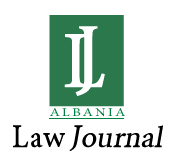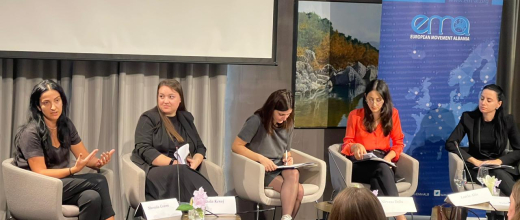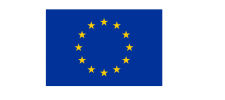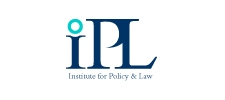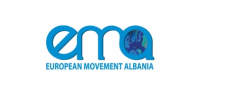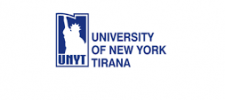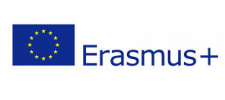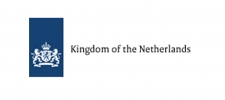On 29th September 2023, European Movement Albania (EMA) organized a forum, with the topic “Rule of law issues during the European Union Integration in the lenses of Albanian scholars’’.
The forum brought together authors from EuroSpeak online journal who have contributed with analytic articles on behalf of open calls for articles published by EMA under this action, focused on topics and issues included in Chapters 23 and 24, such as: anti- corruption, democracy and good governance, migration and asylum, human rights and cyber security. More than 40 applications were submitted under this call, while 12 articles have been published during the period July-September 2023.
Nirvana Deliu, Policy Researcher and Project Coordinator at EMA made a presentation of the main fields of the project and the opportunities of interest groups to be included and to contribute in planned activities. She emphasized the role of civil society as one of the main actors contributing in raising awareness, spreading information, providing technical expertise and monitoring the reformation process that Albania is following under the European Integration process. Deliu also spoke about National Convention of European Integration and its role as one of the main components of this project. She mentioned the establishment of 5 Working Groups and the call for preparing 16 Policy Briefs and articles focused on issues of both Chapters 23 & 24. Another important part of the action is also the Academy of Rule of Law which is concepted as an opportunity to build capacities and foster the involvement of activists and young professionals on the EU negotiations process. Furthermore, she mentioned the steps that are being taken to create a webpage which can be used as an interactive online platform to share relevant information and important documents produced by Albanian and EU institutions. Another component of the project is to increase transparency of the judicial system budget through periodic research and monitoring activities.
Anxhela Kenaj, Co-author/EuroSpeak discussed about the integration process of Albania in the European Union, explaining the new enlargement methodology of EU. She paid special attention to the first cluster of EU Acquis, and noted that Albania should fully implement the reforms concerning the fundamental issues of rule of law and especially the reform on the judicial system, fight against corruption and organized crime, protection of the fundamental rights, strengthening the democratic institutions and continuing the reform on public administration. Kenaj shortly covered the process of bilateral screening meetings already completed for the first cluster. In order to address the European Commission recommendations of the draft-Screening Report, Albania should prepare 3 Roadmaps which should conclude tangible and measurable steps to be followed by respective institutions. Specifically, the three Roadmaps are focused on three main issues: the Rule of Law, Democratic institutions and the Public Administration Reform.
Marsida Grami, Co-author/EuroSpeak in her discussion covered the European law in the integration process, opening of the negotiations by reflecting all the developments in Albania on European Integration. Grami stated that the European family is a family of rules and law, mandatory standards and during this process Albania has to increase her economic, democratic and political standards, to implement them in the best way possible and to recognize and guarantee the fundamental human rights. Regress in the subject of rule of law is decisive for all the integration process. Furthermore, Grami analyzed the development on the adaption of the new judicial map which aims to balance the workload between judges and prosecutors and also to allocate courts to cover up in the best way possible all the geographical area of the country. The new map aims to optimize the human and financial resources, to raise court efficiency and to diminish the negative impact of the vetting process. Grami identified the gaps in the judicial system which is not totally independent noting that this damages the level of public trust related to transparency. To sum up, she gave special attention to the democratic institutions and their importance in ensuring the social unity.
Lorela Alia, Author/EuroSpeak presented the challenges and obstacles of Western Balkan countries in the European integration process. Alia pointed on components as corruption, political polarization and clientelism and other similar issues that Western Balkan countries have faced through years and in continuity. In regard to Albania’s path to EU, trying not to avoid the meritocracy element, she underlined the importance of political element that goes along with the technical process. She stated that a reflection on all of these issues would be essential and it would bring an improvement of IPA III efficiency. Hence, Albania will generate more projects and their implementation will be more effective and efficient.
She listed these essential deficiencies related to IPA funds management and implementation in Albania:
Lack of initiatives to draft and apply on different actions
Lack of coordination and communication between institutions and actors that are part of the process
Lack of transparency and information related to projects, funds and their implementation
Mismanagement of the funds because of corruption in high levels
At the end, she stated that except all of these elements and challenges that may affect negatively the process of EU integration, Albania continues to be one of the most pro-EU countries in the region and considers the EU integration as the only alternative for the future of the country.
Valeria Bardhaj, Author/EuroSpeak analysed the digital reform on public services in Albania. She mentioned the challenges that have been alongside this reform and the result that it brought in t simplifying of procedures for citizens and businesses. According to her, digitalization of services, concretely through the e-albania portal was a long-term necessary reform to end for good several issues as long queues, bureaucracy in the institutions, high costs and also to minimize corruption and to prompt investments. She mentioned the United Nations report which ranks Albania in 8th place in Europe and 18th place in world, for offering public services online. At the end, she paid attention also to the cyber-crime threats and mentioned that the digitalization introduces new forms of crimes and violations as for example cyber-attacks occurred in Albania which caused the violation of national security, hindered the quality of the service, leaked confidential data etc. She emphasized the need for maximum focus on prevention, while updating legislation, increasing capacity building and also creating better experiences on preventing and improving such threats. To conclude, Bardhaj mentioned that is still a lot to do in this direction and a lot of challenges to face.
Open Discussion: Participants shared their ideas and suggestions to raise the role of civil society in the process of EU integration. Questions were focused on the new judicial map, costs and effects of judicial reform which are not always positive and also on the process of preparation of Roadmaps on EU negotiations. Special attention was paid on latest developments in Western Balkans region and the necessity for more cooperation because dialogue and good relations between WB countries affect directly their EU integration progress.
